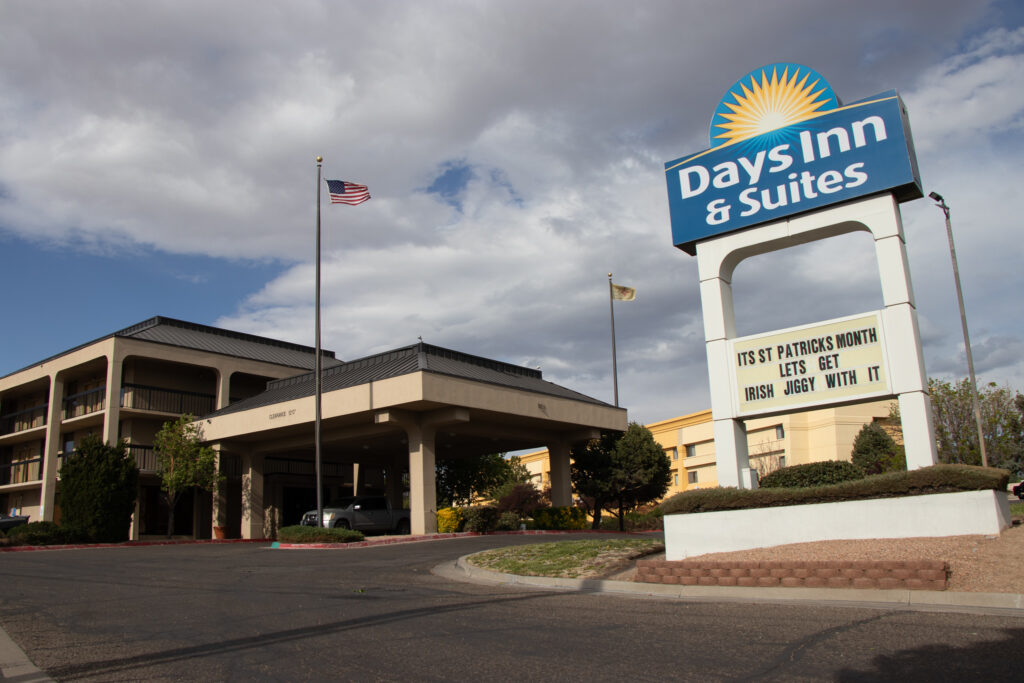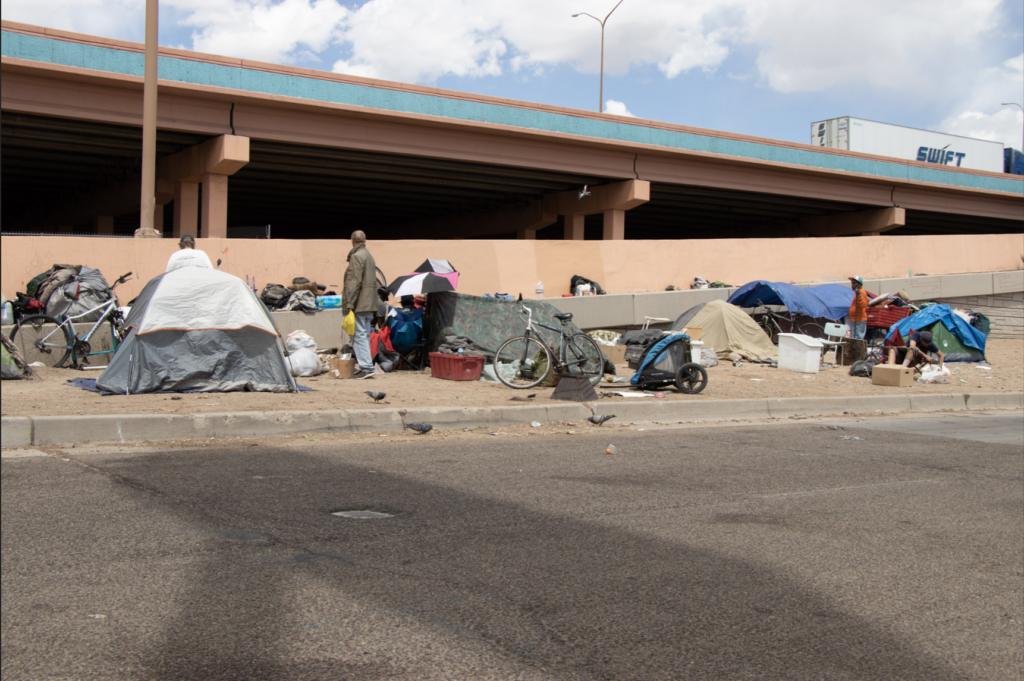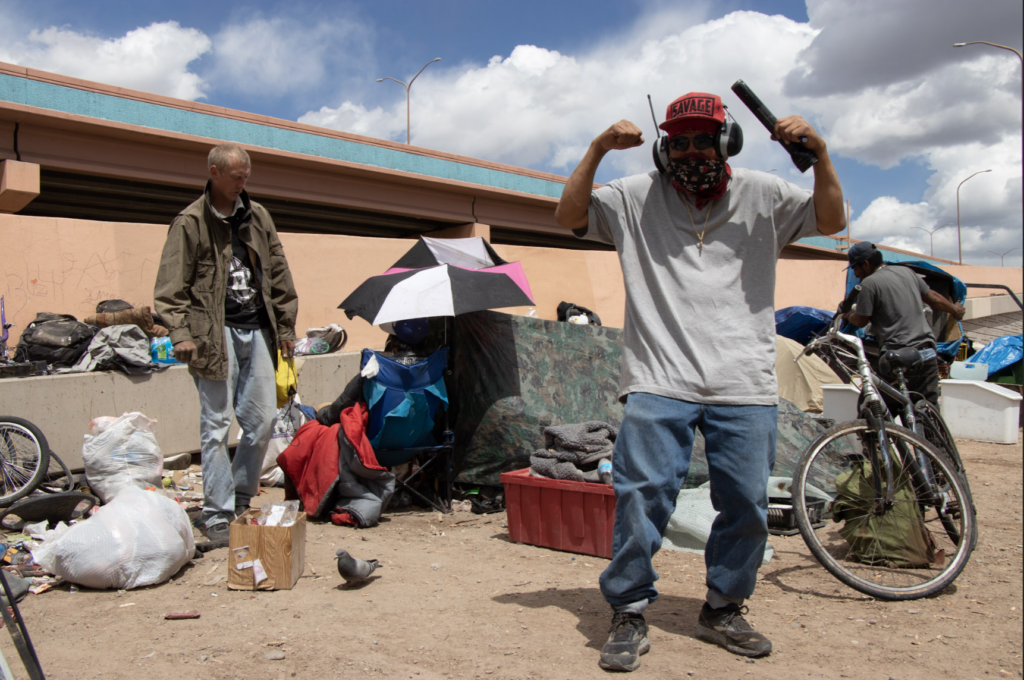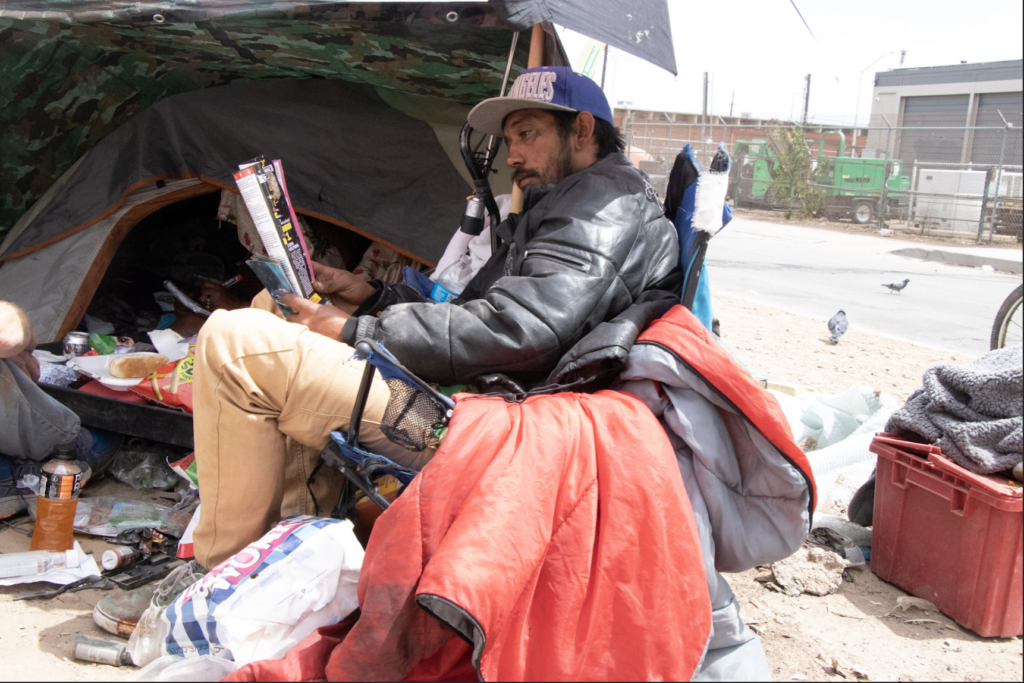By Daniel Ward
The city of Albuquerque currently has three wellness hotels available for unhoused families or individuals with underlying health problems. Two of the hotels will be discontinued at the end of June due to warmer temperatures, COVID-19 cases going down and vaccinations increasing. One will continue operating for unhoused families with children.

To maintain the privacy of the hotels and their occupants, the city titled the hotel’s locations as Wellness 1, 2 and 3. The first, W1, was implemented in June of 2020 to keep unhoused people off the street and safe from the virus. W1 was limited to unhoused people who were either over 60 or had underlying medical conditions that put them at higher risk to the virus.
The second hotel, W2, was arranged in October as a preparation for the first cold snap of the season. W2 followed the same housing criteria as W1 with the only accommodation being that it allowed families with children under age 18 to stay there if needed. The third hotel, W3, came in December with the same criteria as W2.
Myra Segal is the Family and Community Services senior advisor for the city of Albuquerque and has worked with assisting unhoused families to get into the wellness hotels. She said over 170 children are currently being housed in the wellness hotels.
“We want to avoid trauma for the children because homelessness is one of the most serious adverse childhood experiences you can have,” Segal said. “By providing them shelter and food, I’m hoping that we’re also avoiding trauma for the children while the APS Title 1 helps them get into school.”
After the end of June, any families living in W1 and W3 will be transferred to W2 which will remain operating for families until March of 2022. W2 has a maximum capacity of 100 rooms available for the program while the other two hotels had a little over 50 rooms each.
Segal said everyone approved to stay in the hotel had to be tested for COVID-19 first and they were all offered the vaccine. According to a press release from the City of Albuquerque, 345 doses have been given to people across the three hotels and the Westside Emergency Housing Center as of April 14, 2021. Segal said that number has grown to over 400 doses since then.
“It’s been a really successful program,” Segal said. “It was a response to COVID and it worked. Out of nearly 1000 people that have been served through the wellness hotels, less than five have gotten COVID since they entered the hotel.”
Segal said the city has provided a room for at least 950 people since the start of the wellness hotel program. Some people stay for a week or two while other families have been there for a few months. The hotels provide the temporary residents with three meals a day, as well as access to laundry facilities.
Louisa Baca and Harold Sanders are an elderly couple that have been unhoused for over two years. They were living out of their car for a while until Sanders got COVID and Baca had to sell the car to pay for medical fees. She said they tried applying for the wellness hotels but never heard back.
Segal said that individuals can’t self refer for a spot in the hotels. People in need are usually referred to the wellness program by a private agency like Healthcare for the Homeless (HCH).
“I told them all we need is a little help,” Baca said. “He’s (Sanders) retired and I get disability, we could make it. We just need a little help getting in. I have faith and I’m not going to give up.”
Baca said Healthcare for the Homeless helped her get into the downtown inn while Sanders was still in the hospital with COVID. Private entities like HCH, First Nations and the Barrett Foundation have voucher programs to get people into quarantine hotels, but most of them have reduced operations with the decrease in COVID-19 cases.



While not everyone in need of housing assistance can be served in Albuquerque, there are a lot of local and national non profit organizations as well as other resources dedicated to helping the homeless. Ilse Biel is the Resource Manager at Tiny Home Village, a temporary housing community funded by the local government. Biel said she’d like to see local leaders go even further, suggesting the city should buy a year-round facility designated for housing people experiencing homelessness.
“The problem with the housing vouchers is that they are very short, they can be up to a week and sometimes they’re renewed but it’s an emergency measure,” Biel said. “That of course is all because of cost. So if the city was to buy some hotels, then that cost would be minimized and more people could actually be stabilized.”
Segal said the majority of funding for the wellness hotel program is coming from the Emergency Solutions Grant which was a financial assistance fund through the U.S. Department of Housing and Urban Development as a response to COVID-19.
Daniel Ward is an independent reporter from Albuquerque, New Mexico. He can be reached on Twitter, Instagram and Youtube.